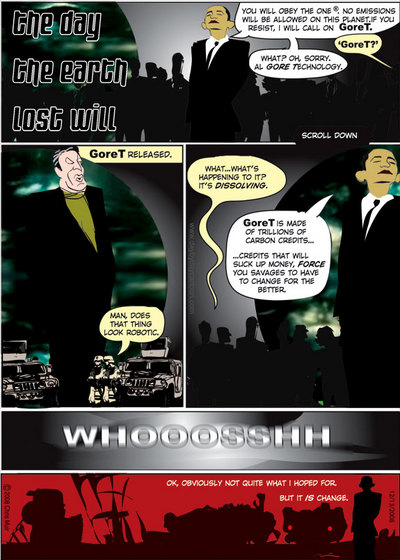The latest situation in Gaza reminded me of a post by Yaacov Ben Moshe from Breath of the Beast entitled Welcome to Sderot that I wrote about back in June. In it he described the constant, dripping, pressure of Hamas attacks on Israeli villages in range of rockets launched from Gaza, and how both Hamas and the Israeli government appeared to use a macabre calculus on how much violence could be tolerated. At the time I compared this to the grim irony of the West being willing “to trade blood for peace, to cut off fingers and feed them to dogs under the table so as not to upset the place-settings.”
As it now appears that the Israeli government has decided enough is enough, and is prepared to shrug off the ignorant pressure of “world opinion” in the same way they have been shrugging off the random missile attacks, it is worth revisting Yaacov’s penetrating essay:
Sderot is an Israeli town within range of Hamas rockets and the victim of the leadership policies of both the Israeli government and that of Hamas that requires a macabre calculus of acceptable losses that keeps both groups of leaders in power … while killing Jewish civilians. Hamas knows that launching rockets on a slow but steady basis, but killing only a few at a time will maintain its political power base with the jihadis, satisfy its foreign sponsors, while not seriously exposing itself to all out countermeasures from Israel.
Simultaneously, Israel’s government tacitly accepts a handful of deaths as being below the threshold of requiring dramatic and deadly response, knowing that it will be pilloried by foreign public opinion and seen as the aggressor if it does so. Ben Moshe cites JINSA (Jewish Institute for National Security Affairs) Report 781:
“For Hamas, the key is to keep the rocket attacks below an understood threshold and Israel’s response will be tolerable, precise and produce minimal collateral (Palestinian) damage. The Hamas pattern is to fire one, two or three rockets at Sderot. Wait a few days and do it again. Injure two, three, four Israelis. Kill one or two, but not more than that – this week. Increase the range and accuracy of the rockets incrementally. Hit Ashkelon, but just once. Then wait. Hit a shopping center, but if no one is killed, the Israeli response is unlikely to threaten Hamas rule. If Israel does retaliate, the world will probably be more annoyed by the “disproportionate response” than the original rocket attack.”
As I was reading, though, something was bothering me. I was still stuck on the seemingly more limited issue of the terror involved. Who are these people who are being killed by the rockets? How do they live knowing that, only if some, unspecified number of them of them are killed and maimed, will their government be moved to do something about the terror under which they live? This dangerous and painful situation is only partially a product of the Arab/Islamist dream of annihilation of Israel. It is made possible by a combination of ruthless internal enemies (e.g. the far left peace movement), clueless dupes (e.g. Olmert, Livni, et al) and shortsighted erstwhile foreign “friends” who do not understand the reality of the threat. This motley assortment of fools and instigators hold Israel’s defense establishment, her regard for her own citizens and, indeed, her very moral, civic, ethical and intellectual integrity hostage.
…
The people of Sderot listen for the sirens all day and all night 365 days a year and all must wonder if today is the day that a rocket will come through the ceiling in a busy dining hall or a kindergarten classroom or a high school auditorium and finally be “enough” to force the government to use the power it has always had- but may not always retain- to eliminate the threat. They wait for the government to act. They pray for the rest of the world to recoil in horror. They face each day with bravery and hope. Just like the people in Jackson’s story, they are hostages.
…
Do you believe that it is about The Nakba or The Occupation or The Settlements? Do you allow yourself the fantasy that there is a way to stop the madness- a sacrifice big enough to satisfy this ravenous cult?
Then what did the innocent victims die for on 9/11- or Madrid- or London- the Darfur? This is part of the same grotesque lottery that has been going on for 1500 years. In spite of the sacrifice of the innocent victims of 9/11, it is all too easy for us to deny that we are hostages too, but those “zero beings” from the Islamist void will not be happy to delete only Israel. They have “selected” them for annihilation first but it is nothing personal, you understand, just a sacrifice to prove there is no value to human life. There is no value to anything that does not affirm the spiritual vacuum of Islamism. It is not because they worship Allah, nor is it is that they believe Mohammed was a prophet. It is that they believe that he was the only prophet, that they know the absolute truth and that it is their mission to ignore (and destroy) all evidence to the contrary. If you believe in life, liberty and the pursuit of happiness, they will not rest until they destroy you too.
The Jihadists are not interested in cease-fires or peace. They are happy to tell you what they want. They want the world to live under Shari’a law. They believe that anyone that doesn’t want that is sub-human and deserves to be killed. This is nothing less than another confrontation with the evil of fascist, totalitarianism, and that is a beast whose hunger cannot be sated with souls, nor can its thirst be slaked with blood. The lottery they are holding is to determine not if you will be destroyed but when you will be destroyed. We are all citizens of Sderot — its just that most of us don’t know it yet.















